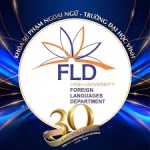Speaker
Description
This study explores the connection between a first language (L1) and success in consecutive interpreting (CI). Prior research has emphasised the importance of second language (L2) proficiency, but L1's influence remains under-investigated. This research proposes that a strong L1 foundation significantly improves interpreting performance. A quantitative approach will be used. Participants will be English-major students with varying L1 proficiency, measured by standardized tests. They will then complete a CI task, assessed for accuracy (fidelity, completeness, fluency). Correlation analysis will explore the connection between L1 proficiency and CI accuracy. We hypothesize a positive correlation, suggesting higher L1 proficiency leads to better CI accuracy. This study's findings aim to broaden our understanding of factors affecting interpreting performance. By highlighting the significance of L1 proficiency, this research hopes to inform interpreter training programs and curriculum development. The emphasis will be on comprehensive language development to strengthen interpreting skills.
Keywords: First language proficiency, consecutive interpreting, accuracy, interpreter training

